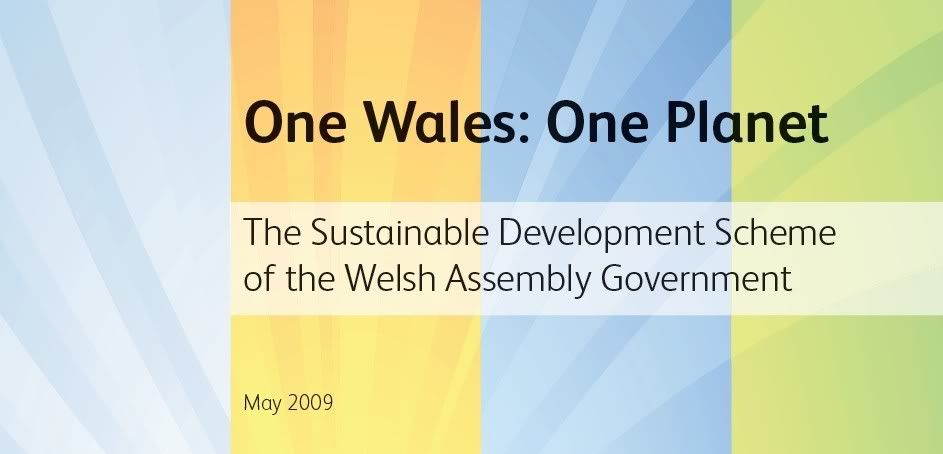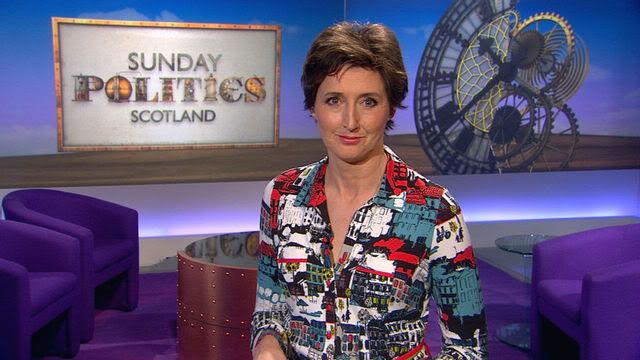I must admit to being a little surprised by the reaction to what Adam Price said over the weekend when he urged Dafydd Elis-Thomas's supporters to give their second preference votes to Leanne Wood, and vice versa.
The first and most important thing to stress is that there is no such thing as tactical voting in an election where we can place the candidates in order of preference. Tactical voting can only apply in voting systems where each voter only has one choice. Specifically, tactical voting is where someone votes for a candidate that they think is second or third best because they will have a better chance of beating another candidate that they definitely do not want to see elected. In this election for the leadership of Plaid Cymru each one of us will be able to list the candidates in order of preference by putting a 1, 2 and 3 in the boxes beside their names ... although we could, if we wanted to, just put a 1 and a 2 leaving the third box blank, or even just a 1 leaving two boxes blank. It's entirely up to us.
That's why it's so misguided to accuse Adam Price of making a plea for Plaid Cymru members to use tactical voting. It shows a basic misunderstanding of how a fairer voting system than first-past-the-post works. All we need to do is rank the candidates in order of preference, we don't need to make any other calculation.
So at the most basic level, if Adam Price or anyone else thinks Elin Jones is only the third best of the candidates in the race, what on earth is wrong with him expressing that opinion and urging fellow members of Plaid Cymru to vote accordingly? I certainly disagree with Adam about who will get my second preference, but we're all entitled to our opinions.

But that said, it's probably right to say that second preferences are going to be the decisive factor in this election. When all the first preference votes have been counted the candidate with the fewest first preferences will be eliminated, and his or her second preferences will then be added to the first preference votes the other two already have to determine the winner.
So the big question is which of the three is most likely to be knocked out in the first round. Most people think that Dafydd is going to be eliminated first, and I would imagine that Adam Price is one of them. But I'm not so sure about that. I think Dafydd will get quite a lot of first preference support based on two factors:
The first is his geographical location. When I looked at the numbers a month or two ago more than a quarter of Plaid's members were in Gwynedd, and nearly half were in north Wales. Perhaps that will now have changed because of the recent increase in membership, with many joining specifically in order to support Leanne, but many members in north Wales as a whole and Gwynedd in particular will support Dafydd purely because they see him as their local candidate.
The second factor is familiarity. We have to bear in mind that not all Plaid members are as actively involved in the party as others. Not all of them will have kept track of the policy positions of the three candidates or, frankly, be that interested in them. Dafydd has been around for a very long time, and in the earlier part of his career did a lot for the party. So some will give him their first preference vote simply because of that, or because they think he is a more recognizable public figure than the other two. For these reasons I have an uneasy feeling that Dafydd might just survive round one.
-
I don't expect Leanne to be eliminated in the first round. On top of her wide support from longer standing party members, I think it's clear that a very large part of the increase in membership over the past few months has been due to people joining specifically in order to support Leanne. She more than anyone has galvanized this election.
If Leanne has any problem, it's not any lack of enthusiastic supporters who will give her their first preference votes. It's that she is likely to be seen as too radical a leader by the more conservative (with a small c) members of the party.
So in a sense both Leanne and Dafydd are "Marmite" candidates. People tend to either enthusiastically support them or think that it would be a mistake to elect them as leader. Elin doesn't quite fall into that category. Of course she will have a good few enthusiastic supporters of her own but, in general terms, I think she is most likely to be seen as the candidate with the "safe pair of hands". For that reason, I would say that she is likely to get a higher percentage of second preference votes than either of the other candidates.

So let's run through the permutations. If Dafydd is eliminated in the first round, the second preferences of those who put him first will come into play. I think most of those would be likely to go to Elin, so Adam's intervention to try and get Dafydd's supporters to put Leanne second makes perfect sense from his perspective. It's not an appeal that I could make, for I've made it perfectly clear that I think Dafydd is totally unsuitable as a leader and therefore his supporters are not very likely to listen to someone like me urging them to put Leanne second ... though I hope they will.
I think we can safely rule out Leanne coming third, so the other possibility is that Elin is knocked out in the first round. If that happens, the second preferences of her supporters will be the ones that matter.
I hope it will be clear from what I've written in previous posts that I think Elin would make a good leader of Plaid Cymru. I think Leanne is a better choice, but Elin is certainly a close second. So just as Adam—who evidently has more affinity with Dafydd's supporters than he has with Elin's—can rightly appeal to Dafydd's supporters to give their second preferences to Leanne rather than Elin, I would in turn like to appeal to Elin's supporters to give their second preferences to Leanne rather than Dafydd.
-
It's hard to imagine that your first preference candidate isn't going to win, but I would urge each of Elin's supporters to at least face that possibility. If Elin were to be knocked out in the first round, who do you think would be the better leader: Leanne or Dafydd? That's the stark choice you need to face.
I was impressed by a comment from Aled GJ in my previous post, who crystalized things perfectly when he said:
We all knew that Leanne would be fiery for independence from more of a leftist perspective but it's been great to see Elin more than matching her here, albeit more from a centrist perspective. We've also had the Lord providing some entertainment for members, putting the case for a completely different sort of independence, i.e. his right to follow his own line completely on all matters, whatever party policy may be on a range of issues.
I cannot think of one issue of policy on which Leanne differs from Elin. Both of them are equally committed to party's democratically decided position on policy issues, Dafydd isn't. Both of them have an equally consistent record on independence for Wales, Dafydd doesn't. For these reasons alone I would urge Elin's supporters to make sure they give their second preferences to Leanne.






